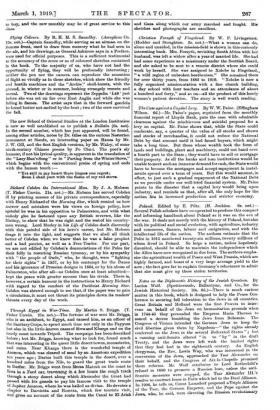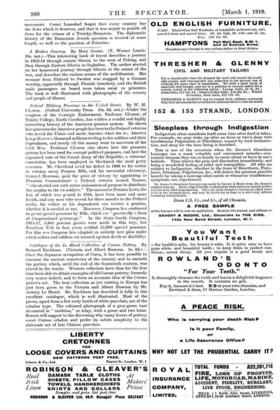Notes on the Diplomatic History of the Jewish Question. By
Lucien Wolf. (Spottiewoode, Ballantyne, and Co., for the Jewish Historical Society. 10s. 6d.)—There is much curious matter in this book, which is designed to help the Peace Con- ference in securing full toleration to the Jews in all countries. Great Britain and Holland were the first Powers to inter- vene on behalf of the Jews on humanitarian grounds when in 1744-45 they persuaded the Empress Maria Theresa to cancel a decree banishing the Jews from Bohemia. The Congress of Vienna intended the German Jews to keep the civil liberties given them by Napoleon—" the rights already conferred on the Jews in the several Federated States " ; but a cunning anti-Semite altered " in to " by " in the draft Treaty, and the Jews were left with the limited rights that they had had in the eighteenth century. An English clergyman, the Rev. Lewis Way, who was interested in the conversion of the Jews, approached the Tsar Alexander on their behalf, and the Congress of Aix-la-Chapelle promised them reforms. Mr. Wolf attributes to Lord Rothschild's refusal in 1890 to promote a Russian loan, unless the anti. Semitic measures were stopped, the Tear Alexander resolve to contract loans in Paris which led to the Dual Alliance. In 1906, he tells us, Count Lamsdorf proposed a Triple Alliance of the Tsar, the German Emperor, and the Pope against the Jaws, who, he said, were directing the Russian revolutionary
movement. Count Lamsdorf forgot that every country has the Jews which it deserves, and that it was unjust to punish all Jews for the crimes of a Trotsky-Bronstein. The diplomatic history of the Rumanian Jewish question is treated at some length, as well as the question of Palestine.



































 Previous page
Previous page